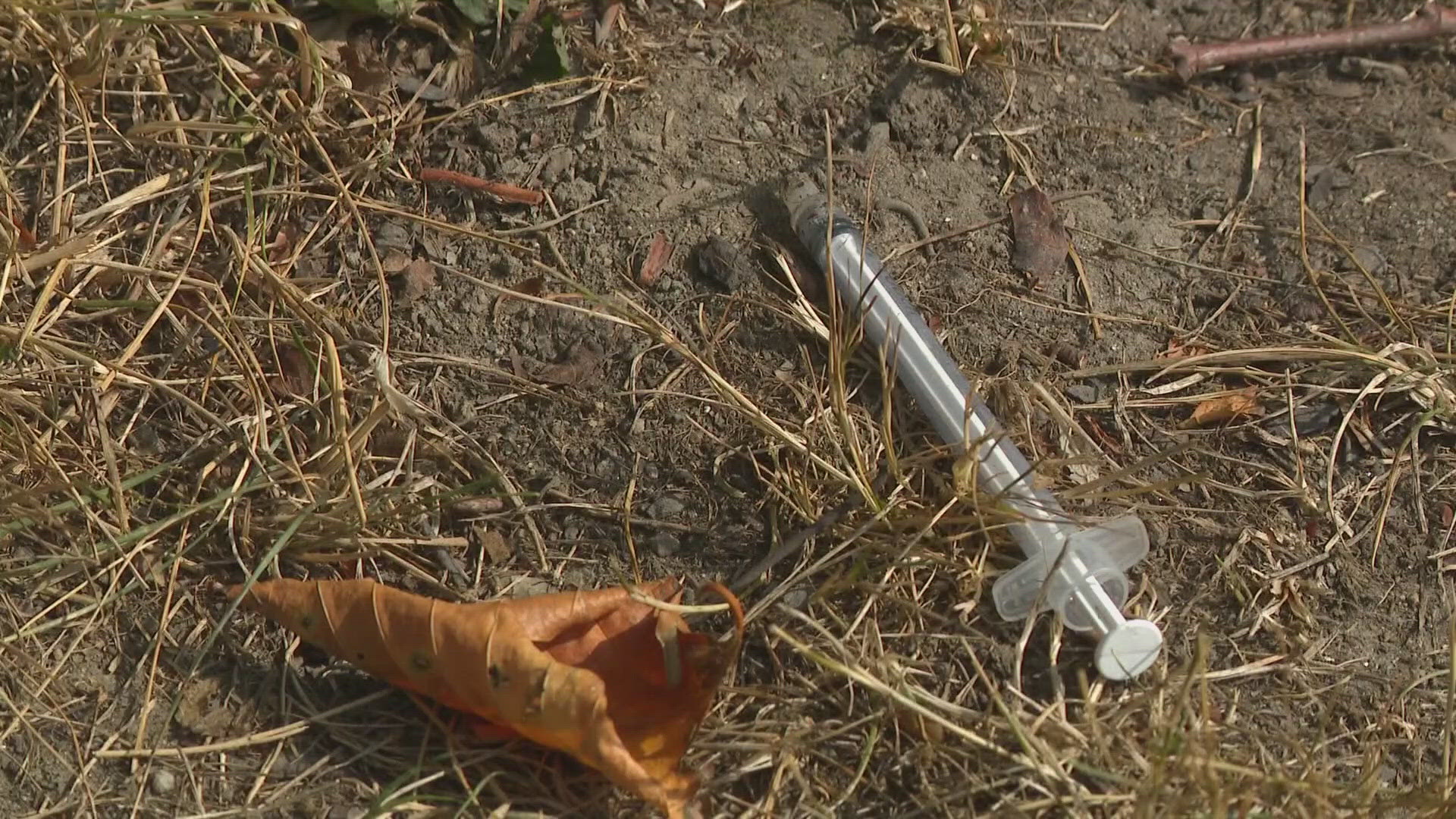PORTLAND, Maine — Portland Mayor Mark Dion wants to change the city's current needle exchange program.
Portland's current policy gives out 100 needles in a single exchange, but Mayor Dion wants to decrease the exchange to a 1:1 ratio, which means a person will receive the same number of syringes they traded in.
"We have needle waste everywhere. Some say it doesn't pose a threat, but I think it does," Dion said.
Dion said he will present a resolution to the City Council to reduce the number of syringes given in an exchange with hopes to decrease the number of needle waste throughout the city.
During a one-year period from 2022 to 2023, city data shows Portland distributed about 786,000 syringes and collected about 537,000 contaminated syringes through the exchanges. The city, on average, distributed 337 syringes to each client over the course of the year.
"I'm saying we need to turn the faucet down," he said. "I don't want an environment where you have to step around needles as part of your daily routine."
Dion said he's talked with business owners and parents who are concerned with the amount of needles lying around the city. He said he hopes his resolution will cause a conversation that he thinks is long overdue because he questions whether the city is helping or enabling addiction through its current needle exchange ratio.
"I want us to be more intentional about saying, 'Hey, we're supplying you some needles to keep you safe, but you need to start considering that this won't last forever, and you need to get into treatment,'" Dion said.
However, some people in the harm reduction community have concerns over reducing the number of needles given in an exchange. One of the major concerns is people suffering from addiction will re-use or share needles, which can increase the risk of infections like HIV and hepatitis C.
"When a person is in that need to get their drug or they're going to be really, really, really sick, things like worrying about Hep C or those kinds of things are not the most urgent need for them," Portland Recovery Community Center's Executive Director Leslie Clark said.
Clark said reducing the number of needles in an exchange is a tough balancing act considering both the safety of people experiencing addiction and the rest of the public.
“It’s a really tough question. We know unequivocally that from a public health perspective helping people stay free of HIV, Hep C, those kinds of illnesses protects them and protects the larger community,” Clark said. “We also understand, and we experience it in my own neighborhood. I was taking a walk and saw a needle.”
Over the past year or so, Portland has cleared out multiple homeless encampments throughout the city. The unhoused communities left behind a total of more than 80 gallons worth of syringes, Portland Police Department Substance Use Disorder Liaison Bill Burns said.
"There are a lot of unintended consequences and, you know, there needs to be some real thought about what's the best way forward," Burns said.
"I don't want them to catch these diseases, but I don't want this disease of substance use disorder to continue on the street, and I think the public deserves public spaces, whether they're a sidewalk, a threshold to a business, their doorstep or park to be free of needles," Dion said.

